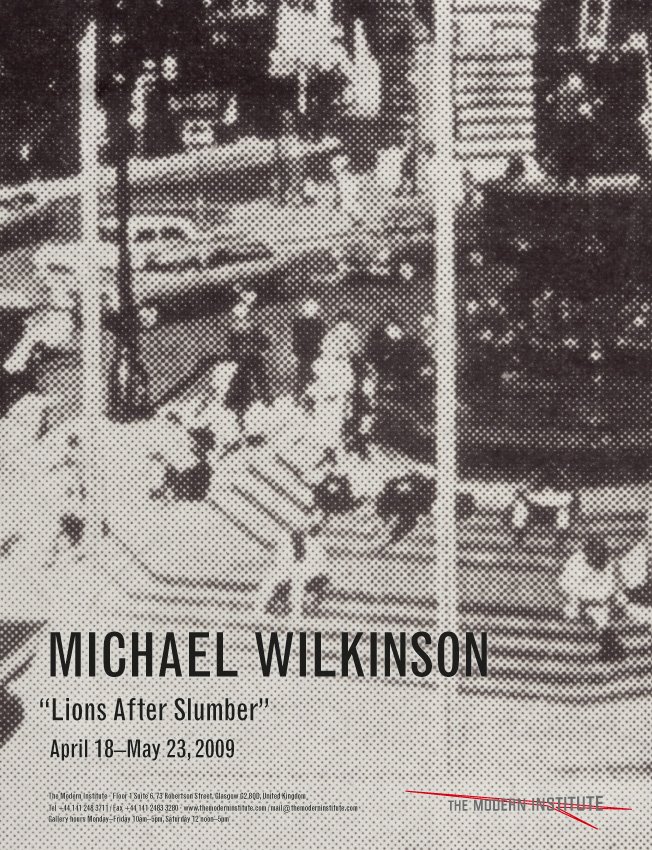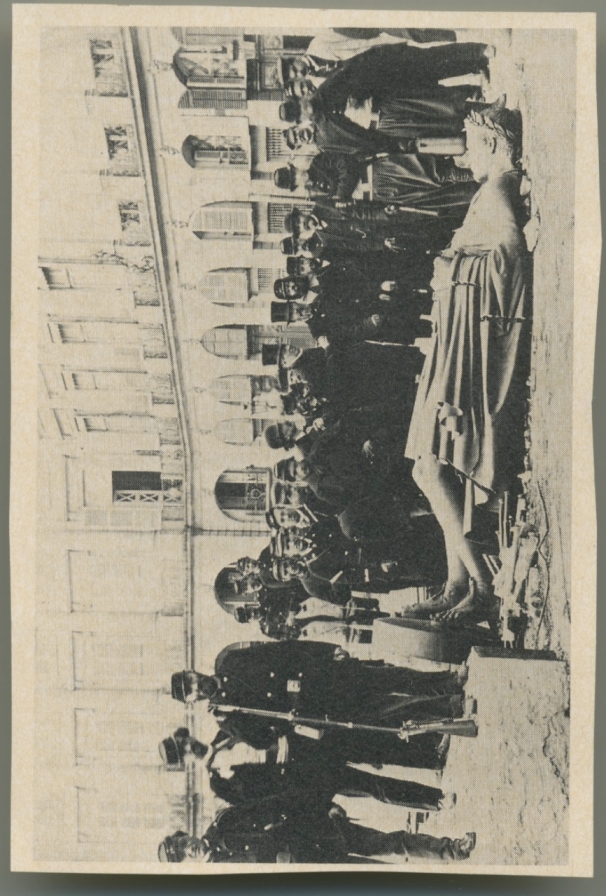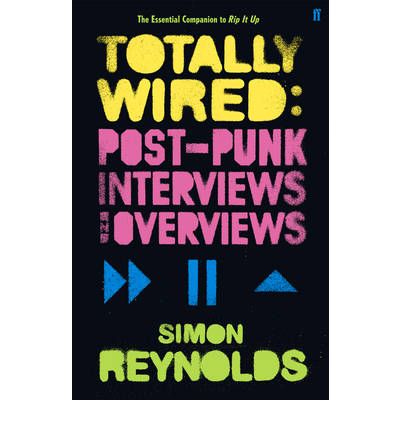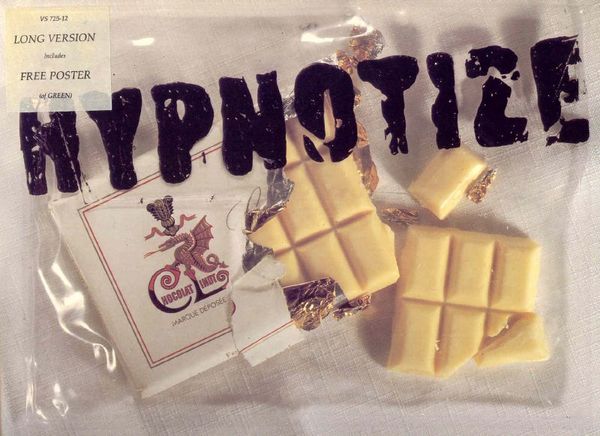How the world got turned the right way up again
Fri. May 29, 2009Categories: Abstract Dynamics

(or, FROM POSTPUNK TO RESTORATION)
April 18th 2009
This text was written as an exploration/ exploration of some of the concepts/ inspirations at work/ play in/ behind Michael Wilkinson’s show at the Modern Institute in Glasgow, Lions After Slumber. The text includes some materials remixed from this site, but not so many that it is redundant to post it here.
The music is obviously integral to the piece. At Glasgow, I tried to apply some of the lessons I learned from the Gasworks londonunderlondon event. Playing the tracks at high volume and demanding that people listen to them collectively – as if, as someone in Glasgow put it, they were at “a postpunk prayer meeting” – produced a unique atmosphere, both disrupting the standard mode of casual socialising and interrupting for a while the digital twitch of matrix 2.0 and its perpetual attention-drift. I’d never heard “Don’t Sell Your Dreams” played so loud; it seemed like a completely different track. Which made me think (again) that rather than the ATP model of having the ageing group play ‘classic albums’ live onstage, why not gather people together and just play the actual album on a massive soundsystem? The same thing occurred to me watching the Joy Divison documentary: I suddenly realised that I’d never before had the opportunity to hear Joy Divsion’s tracks played that loud.
Play DON’T SELL YOUR DREAMS by The Pop Group
PART 1: DONT SELL YOUR DREAMS
How could a sound like this ever have been made?
A whole secret history of the 20th century is onerically compressed into this lugubrious, delirious sonic anarchitecture
This incandescent condensation of Stockhausen, Duchamp, KingTubby, Albert Ayler, Guy Debord
Amazing that it was work of teenagers – and yet was there ever a sound which channelled the inchoate intensities of a certain kind of teenage overreaching better than this?
A polymorphous punk-funkadelia predeconstructed by dub,
flirting with collapse and chaos,
so close to stasis and ennui,
so gauche,
but in its very gaucherie, in its refusal of embarrassment, a euphoric shattering of the social
in the name of a dream collectivity, a dreaming we, a dreamed we
And not skulking on the margins, but exploding in the heart of the commodity.
On the front of the NME.
1979 – a different world.
What kind of voice is this? You couldnt call it singing.
It makes you think, instead, of Artaud howling against the straitjaketing of his body without organs at the asylum at Rodez.
It incants, it chants
It speaks in slogans
It makes a demand for the impossible, the only kind of demand worth making.
A demand that is not addressed to the big Other, but which precisely presupposes the destruction of the Symbolic order.
Well kill the world
A passion for the real. That old twentieth century dream.
It is an injunction, an interpellation,
addressed to you, just as advertising is.
Dont sell your dreams
It is addressed to another you, not the placeholder self that you that you often mistake yourself for.
Not that dupe-doppelganger embedded in the social networks, but something else.
Something you see only in shattered mirrors.
Something abandoned, betrayed.
And betrayal is always a matter of forgetting, and then forgetting that you have forgotten.
The perfect crime.
Badiou explains:
Betrayal is not mere renunciation. Unfortunately, one cannot simply renounce a truth. The denial of the Immortal in myself is something quite different from an abandonment, a cessatation: I must convince myself that the Immortal never existed, and thus rally to opinions perception of this point – opinion, whose sole purpose, in the service of interests, is precisely this negation. (E 79)
How, under the tyranny of ceaselessly circulating opinion,
How are we –
We who are not a we –
How are we to hear this now?
How can we
We who can no longer be a we
Who instead identify with the I of interactivity
Who circulate in spaces, which no matter how populous, are always only ever MySpace,
How do we
Whose dreams already come to us trademarked
Whose every desire has been preformatted by capital
How do we respond to this?
With the condescension of good sense, the maturity of proper adjustment?
Alenka Zupancic tries to wake us up.
‘The reality principle is not some kind of natural way associated with how things are, to which sublimation would oppose itself in the name of some Idea. The reality principle itself is ideologically mediated; one could even claim that it constitutes the highest form of ideology, the ideology that presents itself as empirical fact (or biological, economic…) necessity (and that we tend to perceive as nonideological). It is precisely here that we should be most alert to the functioning of ideology.’

PART 2: WHICH WAY IS UP?
Place Vendôme, Paris. 1871. The Communards pose with the toppled statue of Napoleon.
When Michael Wilkinson turns the image on its side, it looks now as if the statue is upright and the crowd are dead, laid out in coffins.
The world turned the right way up again.
Except that we can now see that there is no right way up.
Antagonism is constitutive of the social.
Either the emperor stands upright , and the people are dead.
Or the people stand upright, and the emperor is dead.
PART 3: TALIBAN ART
- STATE OF MISERY: A special report.; Afghans Ruled by Taliban: Poor, Isolated, but Secure
By BARRY BEARAK
Saturday, October 10, 1998
Music is banned as hedonistic, though tape players are still available, their use intended only for approved recordings. Something that might be called Taliban rap — prayerful chants without instrumentation — is deemed acceptable. A typical lyric is: ”Do not kill the flowers of the mosque. Do not kill the words of the Koran. Do not kill the Taliban.”
Music appreciation is not an offence that leads to jail. Contraband cassettes are merely confiscated, the unspooled tape then hung from trees and telephone wires.
Perhaps this is why people continue to take the risk. Hamid Gul, 18, said he plays his Elvis Presley recordings, careful to keep the volume low. Hamayun Ahmed, a driver, replaces his cassette of Pushtun pop with Taliban rap each time he approaches a checkpoint or toll booth.
Of course there is more at stake in the image of hanging, unspooled tape than that – the end of analogue, of a certain regime of materiality.
The tangling of time.
The unspooling of history.
The rejection of aesthetics, albeit in the form of an aesthetic gesture.
But isnt what is terrifying about the Taliban precisely their rejection of postmodern capitals compulsory aestheticisation, its triumphal-deflationist reduction of all beliefs to artefacts in the end of history museum? Theirs is the terror of the Real; the terror of a belief that refuses to become culture, that will not reduce into a language game.
In another sense, though, isnt this modelling of the Real, this version of belief, this account of Terror, already incorporated into the end of history DVD?
Here, the Taliban play a very different role to the one they played in the Cold War movie.
They are Bond villains with very real blood.
Behold the believer, behold the fanatic.
Commit yourself, dare to believe, and you become this.
Opinion tells me (and therefore I tell myself, for I am never fully outside opinion, that my fidelity may well be terror exerted against myself, and that the fidelity to which I am faithful looks very much like – too much like – this or that certified Evil.
And then
.
And then
You will be bombed back into scepticism.

PART 4: KNOWLEDGE AND INTERESTS
February 2009. The end of history plus twenty years.
Everything is as it should be. All is right with the world. The emperor has been stood back on his feet again for a long time.
Various postpunk types, including Tom Morley of Scritti Politti and Viv Albertine of The Slits, are arranged on stage.
They are here to discuss Simon Reynoldss book, Totally Wired: Postpunk Interviews And Overviews, the follow-up to his book, Rip It Up And Start Again.
An alternative title that Reynolds considered for Rip It Up And Start Again was Dont Sell Your Dreams.
Morley retains his dreadlocks, but he now uses his drums in his business of corporate team-building. Albertine is excited by the possibilities of releasing music on MySpace.
They look slightly bewildered, former lions who have slumbered so long that they have forgotten that they were ever awake.
Forgotten what it is to be awake.
They speak blearily, vaguely
Amnesiac talk about the strictures and strictness of those times
Terror and ascesis
Dogmatism and discipline
The supposed autocrats who imposed it
Green Gartside, Mclaren, Westwood
Tough back then
Every aspect of your life, your clothes, your sexuality, under scrutiny
You couldnt be yourself
Now its OK to say that you like Neil Young
Anything goes
Then the music starts,
And everyone wakes up
Play KNOWLEDGE AND INTERESTS by SCRITTI POLITTI
Even in its malformed messiness, even with all its sound-potholes and indecisions, there is an icy lucidity to Scrittis music at this time. The time being 1978.
It is a laser cut through the end of history haze.
Unlike The Pop Group, there is nothing Dionysiac about Scritti.
In fact, they were possibly the least Dionysiac pop group ever.
The methodology then was improvisational, but the group didn’t want anyone (least of all themselves) to be under the illusion that it issued from some vitalist wellspring of creativity.
It was the sound of a collectivity thinking (itself into existence) under and through material constraints.
Talking to Simon Reynolds five years ago, Green said:
- Its a kind of scratching, collapsing, irritated, dissatisfied music. I was listening to some music the other night, on 6 FM or whatever its called, BBC 6, their alternative rock station, and I was struck by all the bands: there was no trepidation. I had no sense that the bands were ever playing with anything that they were slightly frightened of – in themselves or in the music. No sense that they were going anywhere where they werent sure where they would end up.
Reynolds replied:
- With so much of the music of that period, but especially Scritti, theres precisely what youre talking about: a feeling of precariousness. A real sense of anxious struggle, people grappling with these deep doubts and exorbitant hopes: where do we go next after punk?
The question to ask now is: how is this doubt beat, this negative capability, different from blank postmodern scepticism, from the end of historys circulation of infinitely revisable opinion?
Because it is a matter of questing as much as questioning
Of exploring a new space
A space that is under construction
A space that is a gap in the world
A puncture wound, described by Alenka Zupancic:
Sublimation is thus related to ethics insofar as it is not entirely subordinated to the reality principle, but liberates or creates a space from which it is possible to attribute certain values to something other than the recognized and established “common good.” … What is at stake is not the act of replacing one “good” (or one value) with the same planetary system of the reality principle. The creative act of sublimation is not only a creation of some new good, but also (and principally) the creation and maintenance of a certain space for objects that have no place in the given, extant reality, objects that are considered “impossible.”‘
What was the ‘beyond good and evil’ of Scritti, the Pop Group and the Raincoats if not the production of just such a space?
(As Lacan wryly notes, when we idly think of someone who is ‘beyond good and evil’ we are liable to think of someone is merely beyond ‘good’.)
What on the one hand is an austere asceticism is at the same time engineering of new forms of enjoyment.
In flight from rock’s ‘condition of possibility’, this undo (it) yourself pop puts into question ALL conditions of possibility, and with them the very concept of conditions of possibility.
This is happening, now, but it can’t be, it’s Impossible….
It cant carry on, so the reality principle tells us.
And this time the reality principle will win.
Play HYPNOTIZED by MARK STEWART AND THE MAFFIA
PART 5: HYPNOTIZED
Zizek:
‘In post-liberal societies … the agency of social repression no longer acts in the guise of an internalized Law or Prohibition that requires renunciation or self-control; instead, it assumes the form of a hypnotic agency that imposes the attitude of “yielding to temptation” – that is to say, its injunction amounts to a command: “Enjoy yourself!” Such an idiotic enjoyment is dictated by the social environment which includes the Anglo-Saxon psychoanalyst whose main goal is to render the patient capable of “normal”, “healthy” pleasures. Society requires us to fall asleep into a hypnotic trance…’
Lockdown. 1985. The veneer of democracy fading on TV.
Miners lined up against cops and paramilitaries.
The Miners represent history. A history that is about to end.
Their defeat will seal it.
Its been planned for years. Capitals agents consolidating the next phase.
Call it postFordism, neoliberalism, capitalist realism.. Its already underway.
Capital has solved the labour problem.
So, in a sense, this is all for show.
The end of the world, the end of all our worlds.
All of this will come back
(Everything comes back is the law of Web 2.0)
It will come back, but as its own simulation
Put through special digital filters that give it an even more aged appearance, and mark it as someone elses history.
But all history is someone elses history now.
We are no longer partisan antagonists.
We have joined the debate.
There are no spectators, because we are all participants.
Plugged in, texting our vote, paying attention.
Cut back to 1985. Mark Stewart, five years after the end of The Pop Group.
His sound now stiffened with an adamantium exo-spine imported from New York hip hop.
He cuts up the tapes by hand, increasing the distortion and abrasion.
He crudely splices them together again, but so that you can hear the joins.
Burroughs citations and Burroughs methodology.
Simulating the noise of a polis acrid with the smoke of antagonism.
Alongside the recanted facts – 7% of the population own 84% of the wealth – radio samples, ephemeral fragments of longing, disco quotations –
Hypnotized is a sonic collage as anti-love song, a demystification in the spirit of Gang Of Fours Anthrax though far less measured.
Stewart is still howling from the outside
Against domicile, domesticity
Against the privatization of all space.
Against the prison of anothers eyes.
Against capitals substitute for the sacrament
Heaven must be missing an angel

Play HYPNOTIZE by Scritti Politti
I forget to believe in heaven, when I look at you girl
First of all, note the comparisons.
Like Stewarts Maffia, the new electro-reinforced Scritti has a hard hip hop exoskeleton.
It also is not a love song so much as an examination of love,
But what Green inscribes is the Lacan lack of the lovers talk –
The love letters necessarily left incomplete
He doesnt rail against romance from outside.
For Green now,
back from a breakdown,
totally reconstructed like his music,
there is no outside.
Only a Moebian band, an endless, seductive surface to play with, unsettle and be unsettled by.
From a concern with the inverse interplay of the means of production and the production of meaning
to a revelling/ unravelling in meaninglessness.
How could your nothings be so sweet?
All wordplay turns to non signifying honey in Greens mouth, his voice now no longer mockney Robert Wyatt but modelled on Michael Jackson
A continual slide between two types of Non-Sense: the nonsense of ‘the lover’s discourse’, the nursery-rhyme-like reiterations of baby-talk phrases that are devoid of meaning, but which are nevertheless the most important utterances people perform or hear;
and also the nonsense of the voice as sound, another kind of sweet nothing.
Greens voice almost prevents you hearing the lyrics except as senseless sonorous blocks, mechanically repeated refrains.
As opposed to Self-consciousness, a ‘reflexivity without a self (not a bad name for the subject’).’
Only the void, the voice and the signifying chain, unraveling forever in a shopping mall of mirrors, a whispering gallery of sweet nothings…
It was Paul Oldfield, in his 1989 essay After Subversion: Pop Culture And Power, who most effectively described Scrittis strategies at this time.
- Scrittis departure from the independent business and their change of styles has been interpreted as part of the New Pops entry-ism, its sanctioning of the mainstream as the place in which to put across ideas. But more than that, it was an abandonment of both the ideology of independence and that of entry; the grafting of new aims onto the charts, working from within. Scritti work with pop, in its closure, not against it, nor do they co-opt it for our enlightenment. Scritti understand that order isnt so monolithic that only utopian demands or provocations are possible. Theres subversive work to be done on the powers we exercise over ourselves. Nor is this an oppositional practice. Their music exploits the breaches and deficiencies that are already there in the prevailing discourse. For Scrittis Green Gartside, pop music can always be subversive of the imperatives of meaning. He attempts to elude the closure or reclamation of pops pleasure. Instead of any fulfilment or resolution, Scrittis music delivers the bliss of a lovers discourse in all its ellipses, contradictions and repetition, its endless pursuit of the unattainable object. The disembodied, depthless, non-linear effects, and the borrowings of pops language of love try to undo desires usual articulation in coherent drives and stable identity while reinscribing the very soul language thats used to heal and complete the self in todays pop: the sweet nothings heard beside, within the sexual healing. But such an immaculate pop and so delicate a deconstruction, which hardly seems to touch on institutions, may be hard for consumers to experience as a shaking or subversive effect.
It may indeed have been hard for consumers to experience this as a shaking of a subversive effect.
Capital eats deconstruction for breakfast.
Greens hammer and popsicle pop doesnt even cause the tungsten-carbide stomach a moments indigestion.
On the contrary
Specifically via its influence on Jam and Lewis’s production of Janet Jackson’s epochal Control, but more generally through its entrepreneurial intuition that the flesh and blood of (what was then called) Soul could be sutured with hip hop’s artificiality and abstraction machine, Cupid & Psyche instituted a ‘new paradigm’ for globalized Pop
.
Skank Bloc Bologna has become the Global retail arcade of capital.
Cupid & Psyche is chillingly impersonal, but in a way that is much different to the staged impersonality of Kraftwerk, Numan and Visage which fascinated black American hip hoppers, techno and house pioneers in the early 80s.
Has anyone ever been moved by Greens love songs?
Scritti’s erasure of Soul goes by way of a neurotically note-perfect, ultra-fastidious simulation of a hyper-Americanised ‘language of love’.
It is no longer a matter of technical machines versus real emotional beings, but of ‘authentic emotion’ as itself the refraining of signifying and sonorous machines
Narcissus in cyberspace
But the way had already been prepared.
Play LIONS AFTER SLUMBER by SCRITTI POLITTI
PART 6: LIONS BEFORE SLUMBER
In retrospect, Lions After Slumber and the Songs To Remember album which succeeded it can only be heard as templates for the Cupid & Psyche sound
An unlearning of the unlearning of pop
A way back in, Green strategising how a pop stripped of experimentalism could still disturb
A narcissistic miscalculation, a self-delusion more than an act of deliberated deception
The Shelley quotation at the end of this little relativist hymn is something of a non sequitur.
The invocation of collectivity, the unvanquishable number, follows a litany, a list, which all begins with my.
Could it be, in fact, Lions After Slumber is not about rousing a collective, but about duping and doping it back into somnambulism?
Greens little list as the heap of fragments that we
Who are no longer a we
Now are
My hope and my ice scream
My tomorrow and my temperature
My lips and my selfishness
Myspace
Now no mirror you look in is shattered
You find yourself everywhere perfectly reflected
You forget
You have forgotten
Only a distorting mirror can wake you.